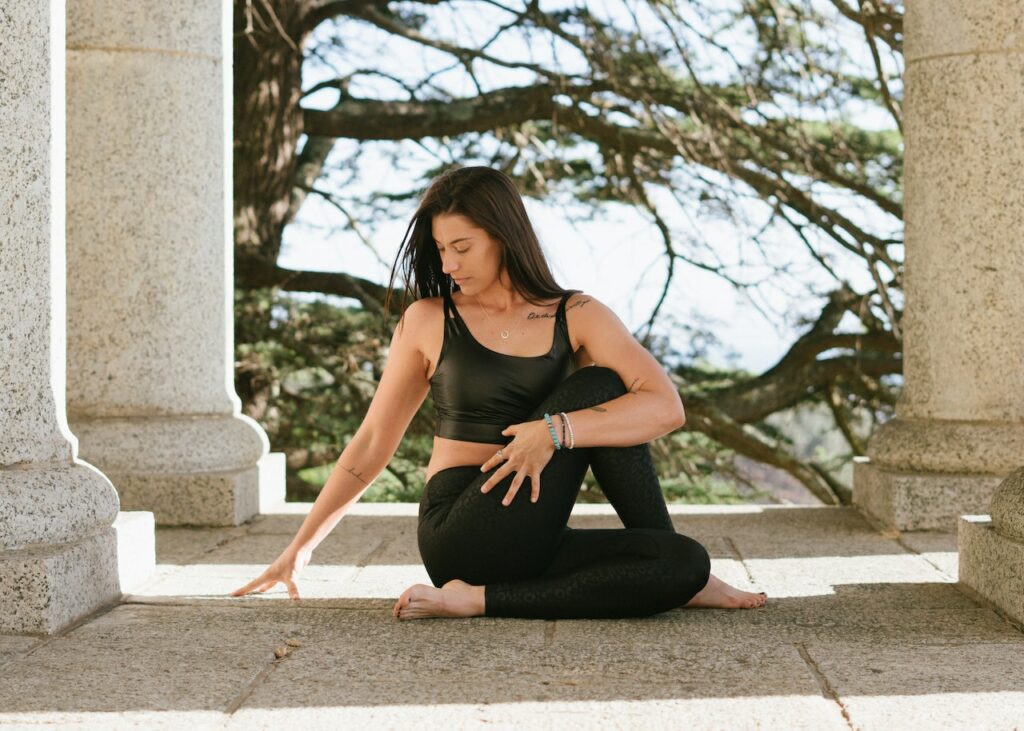Feeling low lately? Maybe you’re having a hard time or simply can’t shake that discontentment. I feel you.
As we mature, we become more conscious of life’s uncertainties and may feel like we have lost ourselves. Health concerns or other obstacles may also make us feel less appreciative. Yet, thankfulness may help counteract unpleasant emotions. We become more hopeful about the future when we concentrate on the positive things in our life, no matter how minor.
Years ago, I experienced this personally. Stress and worry made it hard to feel appreciative. I found a thankfulness book that transformed my viewpoint.
I now practice thankfulness daily. It’s changed everything. I’m happy to provide seven easy strategies to practice appreciation every day.
These suggestions are simple and quick to apply. These may greatly affect your well-being and happiness. Keep reading if you want to feel more thankful and satisfied!

Why Is Gratitude So Important for Your Well-Being?
Did you know thankfulness improves health? Yes! Being grateful for your loved ones and blessings may enhance your physical, emotional, and mental health. Five ways gratitude improves health:
Stress reduction: A 2015 Journal of Happiness Research study found that gratitude reduces stress. Focusing on the good in life reduces stress by preventing us from dwelling on the bad.
Gratefulness improves mood and happiness. A 2017 Journal of Happiness Research study indicated that gratitude journaling for two weeks increased happiness and satisfaction.
Gratitude also improves sleep. A 2011 research in Applied Psychology: Health and Well-being indicated that those who wrote in a thankfulness notebook before bed slept better and longer.
Improves resilience: Regular thankfulness practice strengthens us to endure life’s obstacles. A 2013 Journal of Personality and Social Psychology research indicated that thankful individuals were more resilient and able to recover from hardship.
Strengthens relationships: Showing thanks to others strengthens relationships and social ties. For example, a 2012 Emotion research demonstrated that expressing thanks to a love partner improved relationship happiness and bonding.
Keep a Gratitude Journal
A gratitude journal lets you record your gratitude. Gratitude journals require a notebook and pen or pencil. Write three gratitudes every day. These can be big or small and unrelated to your life. Write about a warm cup of coffee on a cold day or a supportive friend or family member.
Some people prefer writing in their gratitude journal in the morning or before bed. Some write in their journal throughout the day. Make time to think about what makes you happy.
Gratitude journals can boost positivity and happiness. They can also help you appreciate the little things.
Thank others
Sharing gratitude with others can boost your mood and strengthen relationships. Thanking others shows your appreciation for their role in your life. This can deepen relationships with loved ones.
There are many ways to express gratitude, including:
- Thank-you note: Sit down and write a thoughtful note to someone who helped you;
- Virtual thanks: Post a thank-you on social media or send a text or email;
- Show signs of appreciation: Cook or help a loved one with their most important daily tasks.
Enjoy The Moment
For those new to this blog, mindfulness involves focusing on present thoughts, feelings, and sensations without any judgment. Basically, this simple practice can help you notice and appreciate your surroundings.
Here are the main mindfulness tips for gratitude:
- Notice and appreciate small things: Notice the sights, sounds, and other sensations you normally ignore;
- Nonjudgment: Don’t judge or change your thoughts and feelings;
- Be present with your senses: Savor the taste of your food, the sun on your skin, or the birds singing;
- Refocus when your mind wanders: Thoughts wander, but you can gently bring them back to the present.
Be Kind
Kindness is a powerful way to show gratitude and improve your health. Kindness helps others and benefits you. According to research, kindness boosts happiness, reduces stress, and builds community.
Your gratitude practice can include many acts of kindness:
- Help someone: Offer to assist even when others ask for it; this way, they’ll appreciate your input more than ever!
- Share: Give a stranger coffee or open the door for them;
- Write a thank-you note: Take a few minutes to thank someone for their assistance;
- Volunteer: Join a local organization you care about – it will heal your soul, trust me!

Make Eye Contact
Eye contact may improve your relationships by showing admiration and respect.
I learned early on the importance of eye contact. My grandma always stressed eye contact. She always looked me in the eye while we talked, making me feel heard. That was tiny yet meaningful to me.
I’ve learned to value eye contact in all my interactions as I’ve aged. Making eye contact shows, I’m present and involved in discussions with family, friends, or strangers. That shows I appreciate their time.
Eye contact builds trust and connection as well as appreciation. Eye contact creates closeness and vulnerability. “I see you,” we say. This may strengthen our bonds.
Eye contact isn’t always easy. Nowadays, we’re distracted by our phones, to-do lists, and a million other things. Yet by consciously putting down our gadgets and looking people in the eye, we may demonstrate thanks and strengthen our relationships.
Make eye contact next time you talk. It might transform your relationships. You could even brighten up someone’s day!
Active Listening
We show we care by listening to others. It shows we care and appreciates the chance to communicate.
Honestly, I felt unheard as a child. I tried to speak, but my remarks were ignored. I didn’t appreciate active listening’s power until I had a mentor who listened.
Active listening implies paying attention and connecting with someone. It involves asking questions, meditating on their responses, and reacting with empathy and understanding.
We express thanks by actively listening. We’re saying, “I’m glad to hear you and want to comprehend you.” This may deepen connections and trust.
Active listening isn’t simple. Distractions are everywhere, making concentrating on what someone is saying hard. We may demonstrate appreciation and strengthen relationships by consciously putting down our gadgets, looking people in the eye, and engaging with them.
Try active listening next time you’re talking. Listen, ask questions, and be kind. It may transform your relationships and appreciation.
Your Takeaway
Thank you for reading about 7 easy methods to practice appreciation every day. These recommendations should be useful and encouraging. Remember, thankfulness may change your life and enhance your well-being.
I discovered thankfulness through a terrible moment in my life. Gratitude helps me appreciate the little things. I do it every day, improving my happiness and quality of life.
Don’t trust me—try it! Try some of these thankfulness activities in your regular routine and see how you feel. You may be startled by its impact.
Remember, thankfulness is simple. It might be as easy as spending a few minutes each day to think about your blessings or show gratitude to those in your life. Now, think of anything you’re thankful for. Any size is possible. Keep appreciation in mind throughout the day. I promise.
Thank you again for reading, and good luck on your thankfulness journey!
P.S.: Do you have any tips or personal experiences on showing gratitude? If so, make sure to leave a comment below and help our community thrive together!
You might also like: 7 Ways to Turn Meditation Into a Daily Habit









